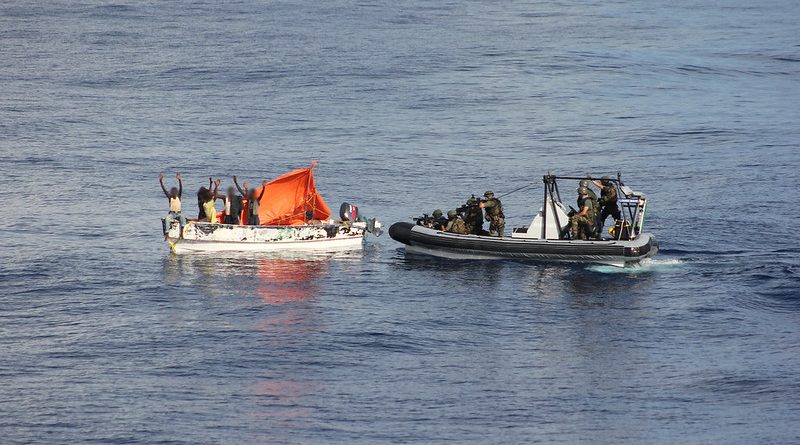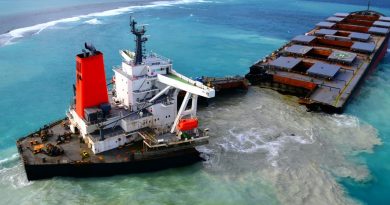Focus on Modern Piracy: Horn of Africa
Tien Phan
Layout Editor
In contemporary times, glorious notions of the buccaneering eras have been replaced with the terror of modern piracy. This is a relevant issue in the Horn of Africa, stretching along the waters of the Somali coast.
Piracy in Somalia is deeply rooted in the realities of individuals desperate for survival. The Jewish Policy Center states that the 1991 civil war, the 2004 tsunami, and ongoing severe droughts contribute to spikes of unemployment and food insecurity. This correlates with unprecedented increases in criminal activity over the past decade, especially in young men who must look for alternatives to meet basic survival needs.
Oxfam reports that in June 2019 at least 5.4 million people were in dire need of humanitarian assistance in Somalia. Out of those 5.4 million, there are about 2.6 million displaced persons throughout the country – almost 40% of the country’s population. The generation after the civil war and tsunami still have not recovered.
Constant lack of basic necessities feeds desperation, which in turn feeds conflict. Young adults join up with small organized cohorts attack cargo ships with outfitting fishing boats, demanding huge ransoms in return for their release, according to The Economist. With just one of these cargo ships, pirates can make millions worth of dollars than with conventional jobs. With such financial motivation, the path to piracy is easier as ever. Utilizing the country’s lawlessness with a loosely-guarded naval border, machetes, and machine guns are enough to seize a large oil tanker.
The Gulf of Aden, the Arabian Sea, and the Red Sea are hotbeds of these activities, especially during their peak from 2007 to 2012. In 2011, the losses endured by businesses alone reached 8.3 billion dollars.
Since 2012, the international community banded together to limit pirate activities. Citing a report by the International Maritime Bureau, Foreign Policy states that there were only three incidents in Somalia in 2016. Under United Nations Resolution 1851, the UN Office on Drugs and Crime (UNODC) facilitates cooperation from anti-piracy regional law enforcement units along the coast of Somalia. The UNODC can acquire funds and coordination to assist with military operations from both the United States and the European Commission.
Furthermore, the repatriation process has seen some progress, with CNN reporting a Danish-based NGO called “FairFishing” combatting the ineffective usage of the Somali coast. Somalia has the potential to develop its economy through maritime agriculture, but the men who knew how to fish either already perished during the civil war or turned to piracy. Fairfishing intends to take on the responsibility of helping young Somalis rebuild their economy. The flourishing fishing industry, combined with a more stable central government, ultimately contributes to piracy’s decline in Somalia.
This turn around in Somalia shows tremendous effort on the parts of both Somalia and the international community in combating modern piracy. However, these efforts must be kept constant, as many fear piracy’s resurgence if donor states suddenly pull their armed forces and economic support for the region.




